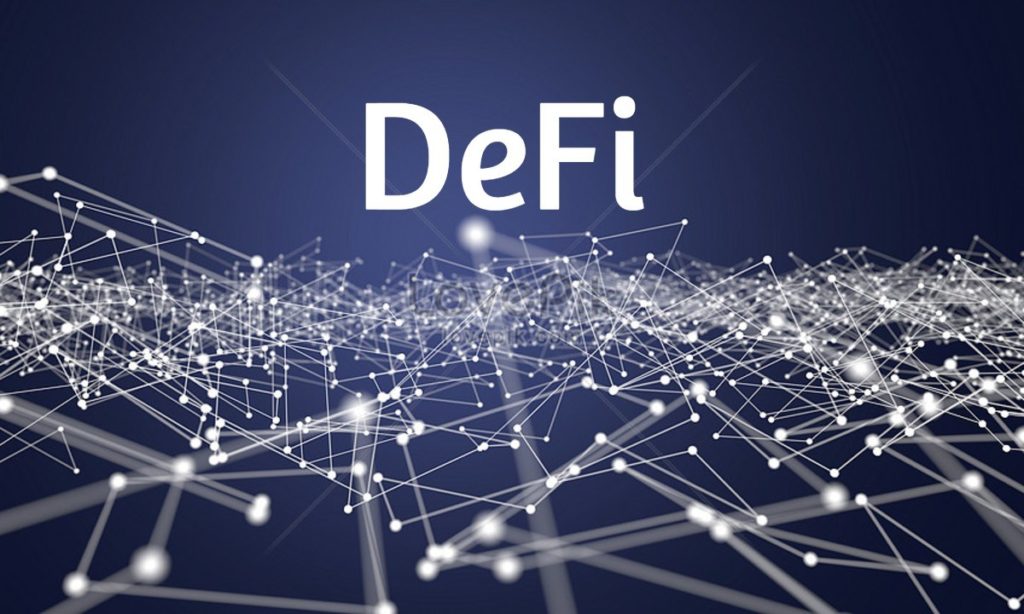So, a financial institution or platform offered you an easy way to enter the crypto market with a promotion that seemed too good to pass up. Now you hold crypto in something called a wallet, but you don’t know what to do next. Scanning crypto news, you see its value rise and fall and hear about cyberattacks stealing millions from platforms and users, and consider getting out of the market just as fast as you got in. But then you read that the crypto market value increased over 1000% in just two years and come across articles about crypto owners becoming incredibly rich, and wonder if you should stick with it.
If it’s any comfort, you’re not the only newcomer to the market who doesn’t know which way to turn. Many people wind up holding on to their crypto just hoping it rises in value, but others reject the thought of figuratively stashing their crypto in a mattress and put it to work earning more assets in decentralized finance.
The DeFi industry evolved over the last few years to provide earning strategies for crypto owners, similar to the services traditional financial institutions provide for owners of the other currency we all know and love. As a new industry, DeFi platforms have had to perfect their business models and improve user experience to attract a market wider than the fintech crowd. As a newcomer, you might still be overwhelmed by unfamiliar vocabulary and complex strategies and decide it would take too much time and effort to learn them. You hate platforms that assume you have a level of understanding that you’re trying to attain. Without that, you can’t tell which DeFi platform will work the best for you and have products you can use.
Starting with some basics might clear up your crypto confusion and investigating an innovative platform like Nimbus can help you make some choices.
In contrast to traditional financial systems, cryptocurrency and DeFi use blockchain technology to verify, execute and record transactions on decentralized and transparent ledgers. Transactions are secure because they’re encrypted, and can’t be changed or reversed because they’re on a chain of transactions on a network of computers. They also don’t need an intermediary like a teller, accountant or lawyer, because they’re executed by smart contracts, which are computer algorithms that function automatically when certain conditions are met.
On Nimbus, like many platforms, not all smart contracts are unique. Segments of the same logic are shared with smart contracts on other platforms, such as the popular token exchange Uniswap. However, it is unique that Nimbus has compiled all of these segments in one place and effectively combines them in a number of financial strategies for their users. Nimbus realizes that many users don’t want to waste time visiting various platforms learning how to use their numerous tools, so it offers a full range of products that are easily accessed with simple, easy-to-use interface.
On top of that, Nimbus also offers unique products like the first yield-generating NFT. NFTs on other platforms represent ownership in unique items, but the Nimbus n-NFT functions like a personalized financial strategy that automatically distributes digital assets across products. This strategy benefits users by mitigating risk and optimizing yields while they save time and fees.
And Nimbus is developing more. It will be offering a unique IPO hub for users to acquire IPO shares with digital assets, without a brokerage or their excessive fees. This IPO Hub will include state-of-the-art analytics and evaluation mechanisms in one place for their users’ convenience.
Smart contacts are combined or created by development teams of specialized computer coders with blockchain expertise. Smart contract development is often outsourced by DeFi start-ups to outside companies, but Nimbus believes that may be a costly mistake. Those sensational articles detailing massive losses for companies might have mentioned flaws in their smart contracts enabled hackers to steal millions. Nimbus avoids outsourcing for this reason. The leadership maintains that if its products are held by an outsourced development team, they don’t have control of the technology and they can’t have confidence in the product.
There could be a few times when Nimbus needs to outsource temporarily, like when they need to launch something quickly or test a new concept for market acceptance. Outsourcing also could be necessary for legal issues. Their policy, however, is to prudently assemble a dedicated in-house development team in a productive environment that can work synergistically within the company over the long term.
Nimbus developers must be aware of the vulnerabilities of smart contracts to make sure they work effectively and don’t have any problems. It’s essential that these experts thoroughly analyze and test smart contracts to prevent errors and loss of control. At Nimbus, smart contract developers need to know financial basics, but they aren’t required to have a financial background because diverse experiences and perspectives are valued by the company.
When you’ve decided that your crypto is not going to multiply itself, gaining a basic understanding of DeFi principles and strategies won’t require fintech night school if you rely on a platform like Nimbus. With just a little self-education, you can put your assets to work.






